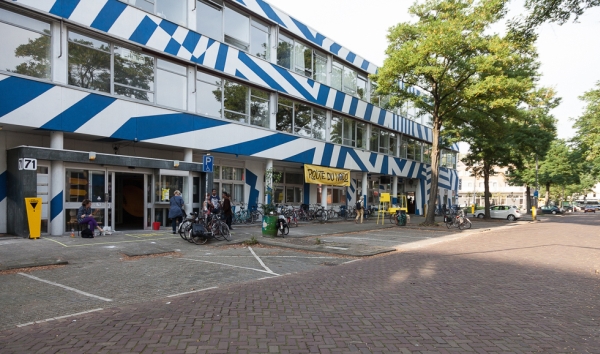[adaptable city 9]
Vacant buildings in the center of urban regeneration: The Stipo Method
Presentation and workshop with Hans Karssenberg (Stipo, Rotterdam)
February 12-13, 2015

February 12, 7.30pm, Prezi, 1065 Budapest, Nagymező utca 54-56.
In February, K├ēKŌĆÖs Adaptable City series will host Hans Karssenberg, co-founder of Stipo. Stipo is a Rotterdam-based boutique urban strategy and innovation firm, specializing in co-creation city redevelopment and user-based, organic, and bottom-up urban initiatives, combining spatial planning with economic development, culture, education, welfare, sport, recreation and tourism.
Stipo was founded at the University of Amsterdam in the early 1990s and became independent from the university in 1995. In the following years, Stipo developed its own methodology to tackle spatial and social problems, focusing on value-based regeneration models based on linking physical, social and economic components, and experimenting with networking, temporary events and differentiated rental agreements. Cooperating with housing associations and members of the creative industry, Stipo regenerated 40 buildings in the past years, including the Central Rotterdam area of Zoho. Based on their research on the regeneration of streets and ground floors, Stipo published in 2012 ŌĆ×The City at Eye LevelŌĆØ, a selection of good practices across Europe.
In Budapest, Hans Karssenberg will present StipoŌĆÖs work, their development projects, cooperations with municipalities and private actors as well as about their research on the regeneration of street regeneration.
The presentation is held in English.
February 13, 10am-7pm, M┼▒vel┼æd├®si Szint, Blaha Lujza t├®r
On the second day of his visit, Hans Karssenberg will lead a workshop focusing on the spatial reorganization and expansion possibilities of M┼▒vel┼æd├®si Szint (M├╝szi).
M├╝szi opened in 2012 at the 3rd floor of the Corvin Department Store, at Blaha Lujza t├®r. The independent cultural centre built on 2800 m2 by volunteers using recycled materials accommodates over a hundred cultural and social organisations and initiatives. After two years, M├╝szi prepares to extend its capacity: the transformations planned for the following years begin with the February 13 event. The workshop, supported by the experiences of the Rotterdam-based Stipo and the participation of the M├╝szi community, aims at defining the principles of the centreŌĆÖs spatial reorganisation as well as establishing the steps of its expansion: in terms of the floorsŌĆÖ new program and architectural installations, helping the productive constellation and sustainability of the hosted activites.
